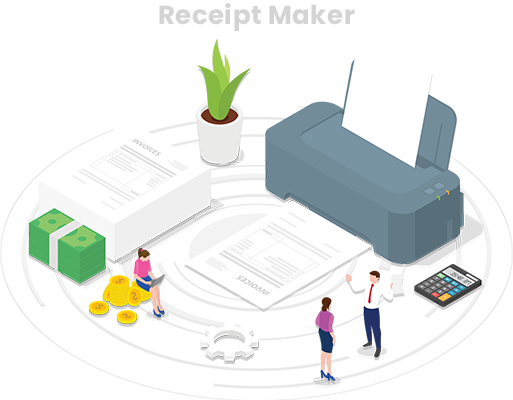Introduction In the digital age, where convenience often trumps caution, the emergence of fake receipt builders poses significant risks to both individuals and businesses. These tools, often marketed as "free receipt builders" or "fake receipt builders," may seem harmless at first glance, but their utilization carries a range of potential dangers that cannot be overlooked. This article delves into the perils associated with the use of such tools, highlighting five key risks that individuals and businesses should consider before engaging with them.
Legal Implications Using fake receipt builders can lead to severe legal repercussions. Fabricating receipts for personal gain or to deceive others constitutes fraud, which is a punishable offense in many jurisdictions. Individuals caught using fake receipts could face fines, civil penalties, and even criminal charges. Moreover, businesses that employ fake receipts for tax evasion or financial deception may encounter audits, investigations, and legal action, resulting in reputational damage and financial ruin.
free recipt builder

Ethical Concerns Beyond the legal ramifications, the ethical implications of using fake receipt builders are profound. Misrepresenting transactions through falsified receipts undermines trust in financial systems and perpetuates dishonest practices. It distorts economic data, leading to inaccurate assessments of market trends and consumer behavior. Moreover, it erodes the integrity of business operations, tarnishing reputations and compromising stakeholder confidence. Ethical lapses in financial matters can have far-reaching consequences, impacting individuals, organizations, and society as a whole.
fake recipt builder

Financial Risks Fake receipt builders pose significant financial risks to both individuals and businesses. For individuals, using fabricated receipts to claim illegitimate expenses or inflate reimbursements can result in financial losses if discovered. Similarly, businesses that rely on fake receipts to manipulate financial records risk severe financial penalties, including fines, back taxes, and legal fees. Moreover, such practices can lead to monetary losses due to inaccurate financial reporting, fraudulent transactions, and operational disruptions. In the long run, the financial fallout from engaging with fake receipt builders far outweighs any perceived short-term benefits.
Cybersecurity Vulnerabilities Many fake receipt builders operate online, raising concerns about cybersecurity vulnerabilities. Users may unknowingly expose sensitive personal and financial information when inputting data into these platforms, making them vulnerable to identity theft, phishing attacks, and other cybercrimes. Moreover, fake receipt builder websites could be fronts for malicious actors seeking to harvest user data for nefarious purposes. Even if the intent is not malicious, the lack of proper security measures leaves users at risk of data breaches and privacy violations. Therefore, individuals and businesses should exercise caution when interacting with online tools, especially those offering questionable services like fake receipt generation.
Reputational Damage Perhaps the most significant risk associated with fake receipt builders is reputational damage. Whether used for personal gain or to conceal illicit activities, the exposure of fake receipts can irreparably harm one's reputation. Individuals caught using fake receipts may face public scrutiny, social stigma, and damaged relationships with peers, employers, and financial institutions. Likewise, businesses implicated in fraudulent practices risk losing customer trust, investor confidence, and business partnerships. Reputational damage can have long-term repercussions, impacting future opportunities and undermining credibility in the eyes of stakeholders.
Conclusion In conclusion, the utilization of fake receipt builders entails a myriad of risks that individuals and businesses must heed. From legal consequences and ethical concerns to financial risks, cybersecurity vulnerabilities, and reputational damage, the perils associated with fake receipt generation are manifold. As such, it is imperative to exercise caution and integrity in all financial dealings, refraining from engaging with deceptive practices that compromise trust and integrity. By prioritizing transparency, accountability, and ethical conduct, we can safeguard ourselves and our businesses from the pitfalls of fake receipt builders, ensuring a more trustworthy and resilient financial ecosystem for all.


